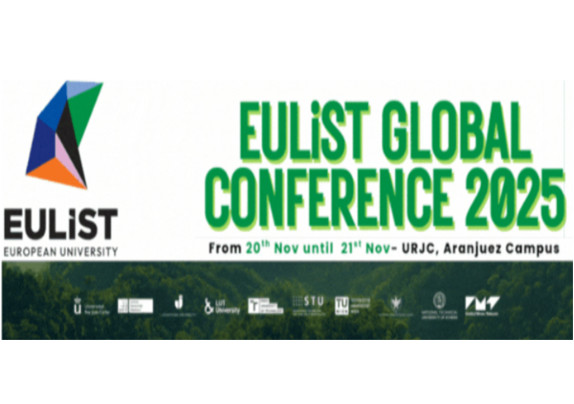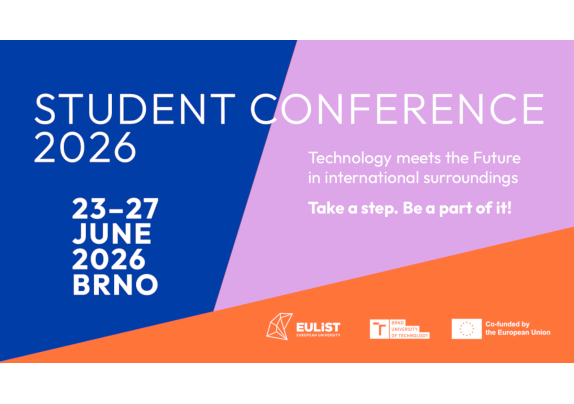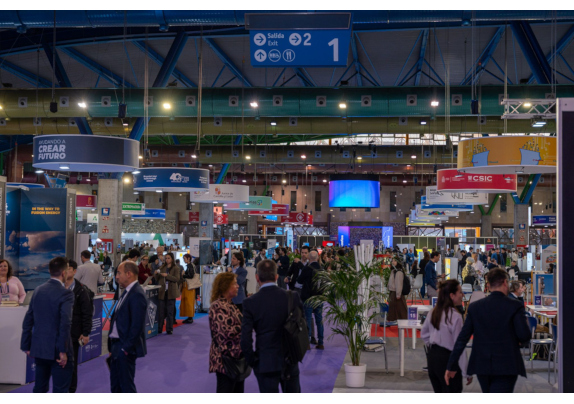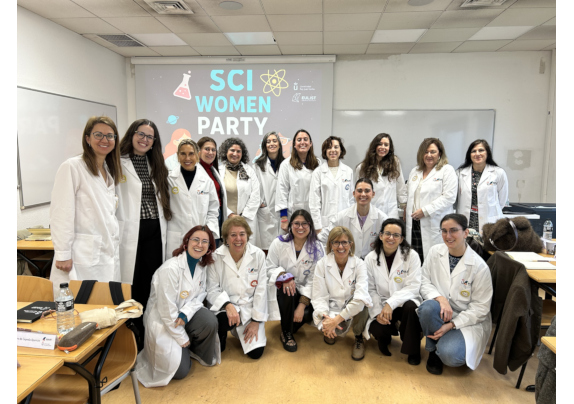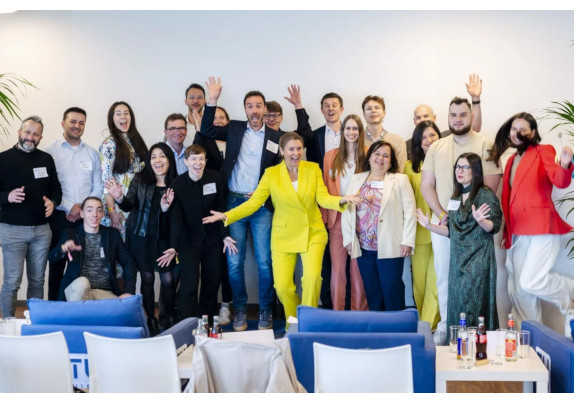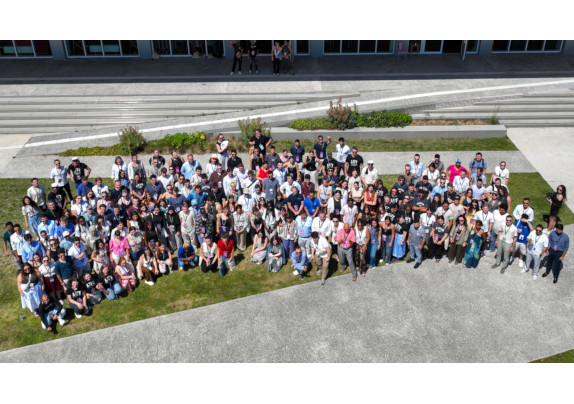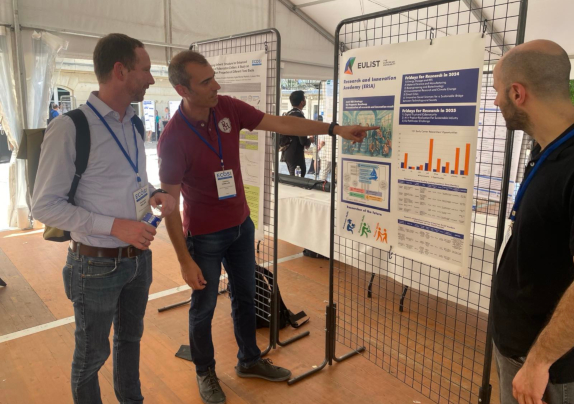EULiST GLOBAL CONFERENCE 2025 Pre-conference for PhD students (and Postdocs within 2 year after obtaining PhD), 19 November 2025
November 19th 13.00-16.00 online
We invite all PhD students, researchers and staff to join the pre-conference session and interact with the speakers (PhD students and young postdocs) through the following link:
EULiST Global Conference – Pre-conference Online Event | Microsoft Teams
Please find the programme attached:
Programme
13:00 – Welcome to the pre-conference (Organisers: Kerstin Johansen (JU), M. Benedetta Mattei (UNIVAQ)
- Background
- Structure of the afternoon
- Expectations
13:10 – Keynote speaker (15 min) Kateryna Kryzhanivska (LUT), “Research for Impact: Empowering Early-Career Researchers to Shape Climate-Resilient Futures”.
13:25 – Question and discussions with the keynote speaker
13:35 – Parallel session introduction
13:40 – Track 1 / Track 2 / Track 3 / Track 4 –themes based on the EULiST Fridays for Research
Track 1. Renewable energy systems: hydrogen, renewable energy sources, storage solutions, societal impacts
This session covers: hydrogen economy, storage technologies (including underground storage), fuel cells, electrolyzers, hydrogen carriers, renewable energy integration, electricity markets, LCA, and social dimensions of the hydrogen transition.
Moderator: Andrea Di Carlo (UNIVAQ)
Speakers:
Armando Vitale (UNIVAQ) “Experimental assessment of a 100 kWth dual bubbling fluidized bed biomass gasifier integrated with catalytic hot gas cleaning”
Alejandro Pérez Domínguez (URJC) “Green hydrogen production by solar thermochemical water splitting with non stoichiometric oxides”
Barbara Malsegna (UNIVAQ) “Hydrotalcite-Based Sorbents for green hydrogen production with simultaneous capture and separation of CO2 by Sorption-Enhanced Water-Gas Shift”
Sanni Sipinen (LUT) “Electrifying stories: The economy, the environment and global change in news media discourse on the developing Finnish battery industry”
Pantelis Manakas (NTUA) “Comparability Index among LCA studies”
Ting Pan (BUT) “Renewable Heating and Power Systems for Low-Carbon Residential Energy Transition”
Track 2. Innovations in advanced materials and smart manufacturing for Sustainable Industry 4.0
This session includes: advanced and additive manufacturing, hybrid and micro machining, surface modification processes, green and smart manufacturing, advanced materials, AI-driven product realization, predictive maintenance, supply chain optimization, and Industry 4.0 applications.
Moderator: (JU, to be confirmed)
Speakers:
Simon Fetzel (STUBA) “Robot Imitation Learning from Videos for small scale production”
Lotfi Makhlouf (IMT) “Hybrid Additive Manufacturing for Agile and Sustainable Tooling: The AGILITY Project”
Meysam Norouzi Inallu (LUT) “Effect of laser powder bed fusion parameters on the functional properties of Ni-Mn-Ga magnetic shape memory alloys”
Michal Križo (STUBA) “Mycelium-Based Composites and Digital Fabrication: Exploring New Pathways for Sustainable Architecture”
Ilias Theodoropoulos (NTUA) “Developing an Integrated Management and Evaluation Standard for Megaprojects across their Spatial Life Cycle”
Track 3. Climate change, environmental resilience, and green urban transitions: technologies and strategies for a sustainable future
This session integrates: climate adaptation and mitigation, disaster risk reduction, biodiversity and ecosystem resilience, sustainable urbanization, green cities, deforestation, water management, and the socio-economic impacts of climate change, including health and societal resilience.
Moderator: (UNIVAQ, to be confirmed)
Speakers:
Angeliki I. Chronopoulou (NTUA) “Climate Crisis and existing buildings’ resilience: The Athenian Polykatoikias of the period 1920 – 1960”
Raghad Awad (STUBA) “Green Infrastructure for Climate-Resilient Cities: Pathways Toward Sustainable Urban Futures”
Vanessa Tomei (UNIVAQ) “Urban Metabolism and connectivity in polycentric urban systems: A Systems-Engineering approach to analyzing the Urban Energy Footprint within Italy’s complex settlement pattern”
Fernanda Gomez Saenz (LUH) “Territorial regeneration and settlement patterns in a rapidly growing Chilean urban agglomeration. The case of Puerto Montt and Puerto Varas”
Ivy Londa (LUT) “Orchestrating Cross-Sector Collaboration for Regenerative Futures: Success Factors Strategies in Multi-Stakeholder Partnerships”
Lenka Pálešová (BUT) “Material Flow Analysis as an Approach to Battery Classification for Effective Waste Management: A Case Study in the Czech Republic”
Track 4. Bioengineering, biotechnology, and smart systems for health, mobility, and sustainable communities
This session brings together: biomedical engineering (biomaterials, tissue engineering, neurotechnology, bioinformatics), biocomputing, wearable devices, bioinspired robotics, smart mobility and transportation, e-governance, digital citizenship, smart energy systems, cybersecurity in healthcare, and AI in sustainability and public well-being.
Moderator: Ioanna Giouroudi (TUW)
Speakers:
Tayyab Rehman (UNIVAQ) “Adaptive Multi-Agent Anomaly Detection for Smart Mobility and Sustainable Communities”
Rabia Altunay Kan (LUT) “Mathematical modeling of biomedical applications and optimization”
Neziha Akalin (JU) “Safety, Trust, and Transparency in Socially Assistive Robots”
Konstantinos Gounaridis (NTUA) “The Spatial Dimension of Accessibility: Digital and Technological Tools in the Potential Redefinition of the Means of Achieving Accessibility”
Víctor Díaz Mena (URJC) “Advanced conductive polymer composites for wearable sensing applications”
13:45 – Each track starts their presentations which are coordinated by one chair (moderator)
Each presenter presents their idea summarized in 2 ppt-slides (according to a template) – in 3 minutes + 1 minute changeover to the next presenter
14:25 – Short break
14:45 – Discussions in each track related to the presentations – moderated by a chair
- Purpose is to summaries 2-4 joint ideas for future collaborations (joint paper writing, mobility activities, research proposal writing, joint educational activities etc)
- Depending on the number of participants – this could be organized by breakout rooms related to each presenter (who in that case will be the moderator)
15:15 – All are welcome to a final summary
- Short summary of each track – chair (moderator) and participants
- Virtual assessment via a virtual tool / questionnaire (ideas of questions are on the conceptual level)
15:55 – Thank you for a nice session – and goodbye.
16:00 – End of session.

